Leaving These 13 Things by the Front Door Could Keep You Safe

The front door area of your home should be welcoming, but only to welcomed visitors. As the most visible entry to a home, this zone can be vulnerable to break-ins. Doing all you can to deter criminals and secure the front door can keep loved ones and property safer. In addition to stopping unwanted visitors, a front entry can help first responders find you if an emergency arises. Learning how to protect yourself and your property doesn’t have to be difficult (or cost-prohibitive), so the following items range from simple DIY steps to long-term solutions.
1. Privacy Film
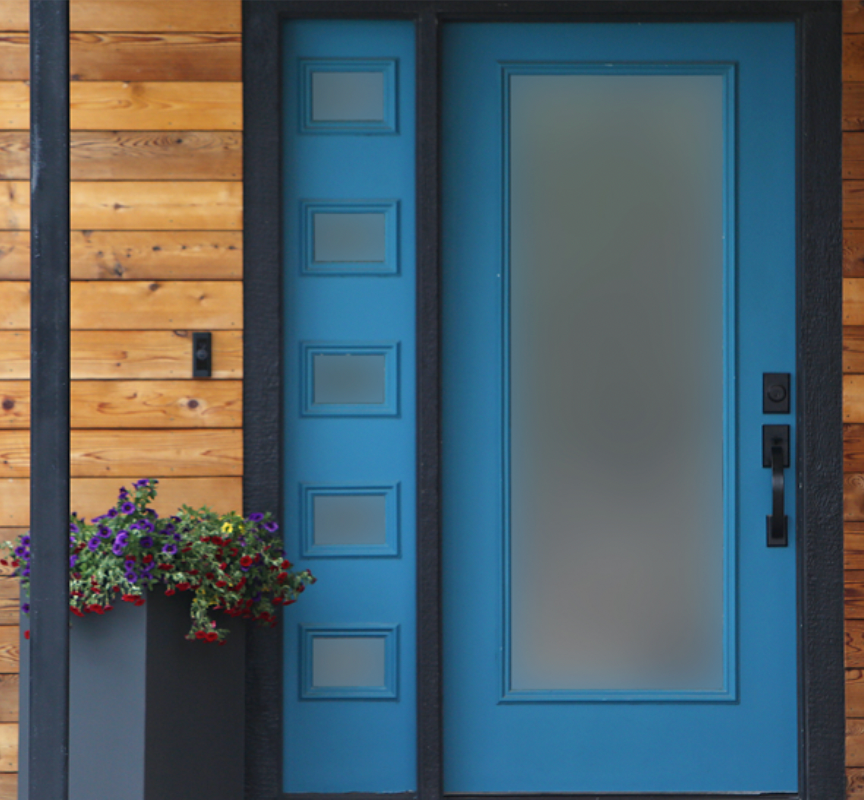
Photo: decorativefilms.com
Entry doors with clear glass inserts or sidelights are beautiful when the sun sparkles through, but they also give unwanted visitors a clear view inside. Obscuring a would-be burglar’s view doesn’t have to involve heavy drapery, though. Installing frosted privacy film, like this privacy window film from Gila, on the inside of the glass can add a decorative element to a window while allowing light to penetrate into the entryway and protecting the contents of your home from curious eyes.
RELATED: Buyer’s Guide: The Best Window Films
2. Old Boots
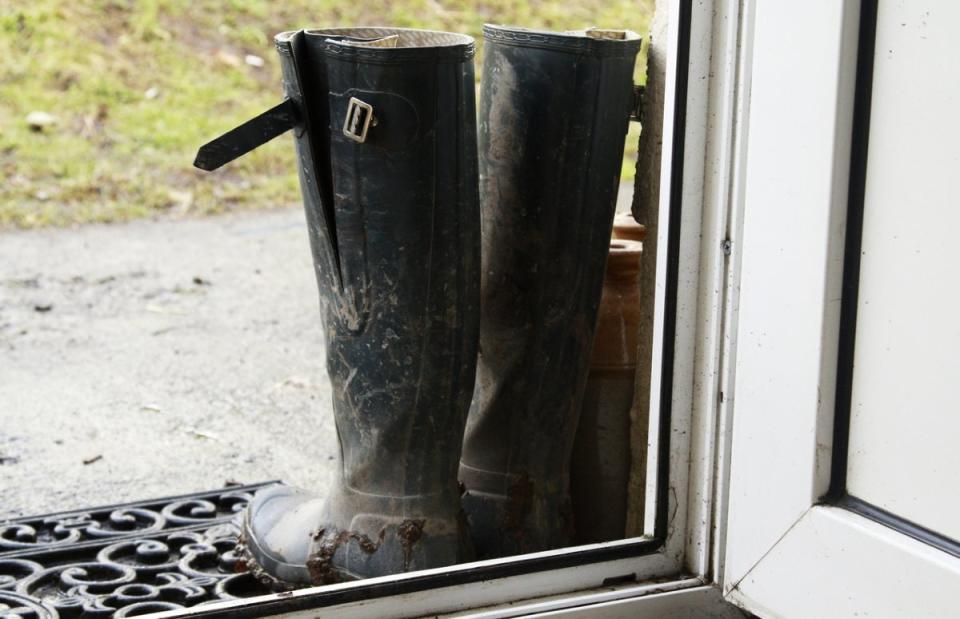
Photo: istockphoto.com
This trick is simple, but highly effective: Keep a spare pair of shoes or boots (the bigger, the better) in your entry closet and set them just outside your front door when you leave. The boots make it look as though someone in the house just left their boots on the doorstep. You can pick up a slightly worn looking pair (an essential part of the illusion) at a thrift store for just a few bucks. Bring the boots indoors when you return.
RELATED: 8 Ways to Drastically Improve Front Door Security
3. Security Sign
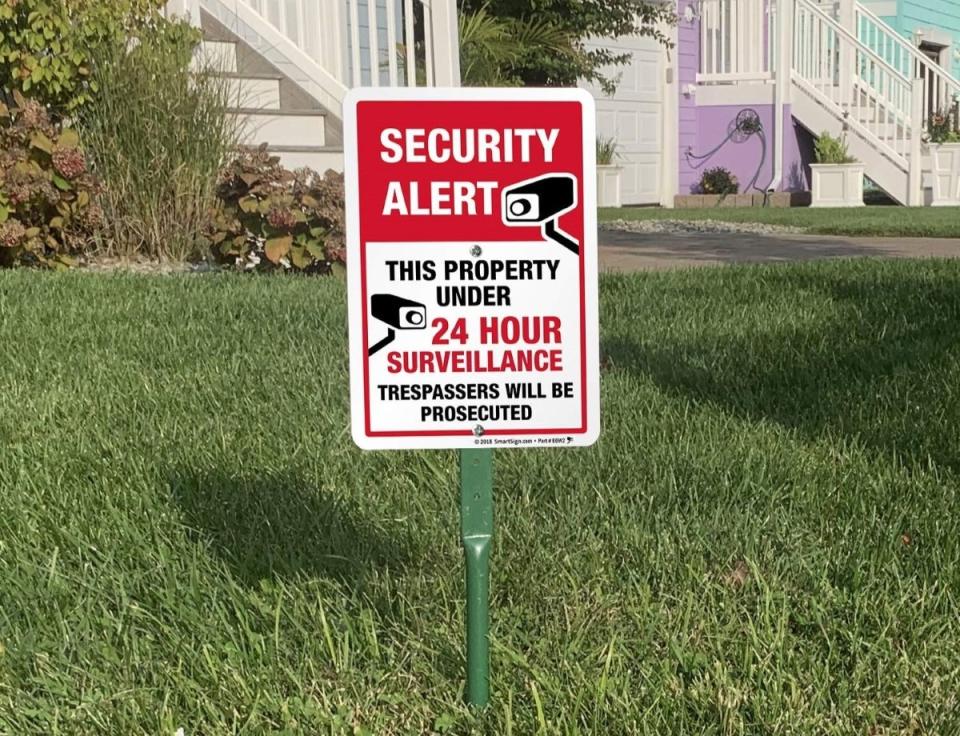
Photo: amazon.com
Whether you pay an alarm security company to monitor your home or not, burglars have no way of knowing. Realistic security yard signs such as the SmartSign security alert yard sign will give would-be thieves reason to think again before breaking into your home. Put the sign in the yard by the front steps so it won’t be missed, and put the security stickers that come with it in windows around your home.
RELATED: Solved! Do Security Signs Really Deter Crime?
4. Visible House Numbers
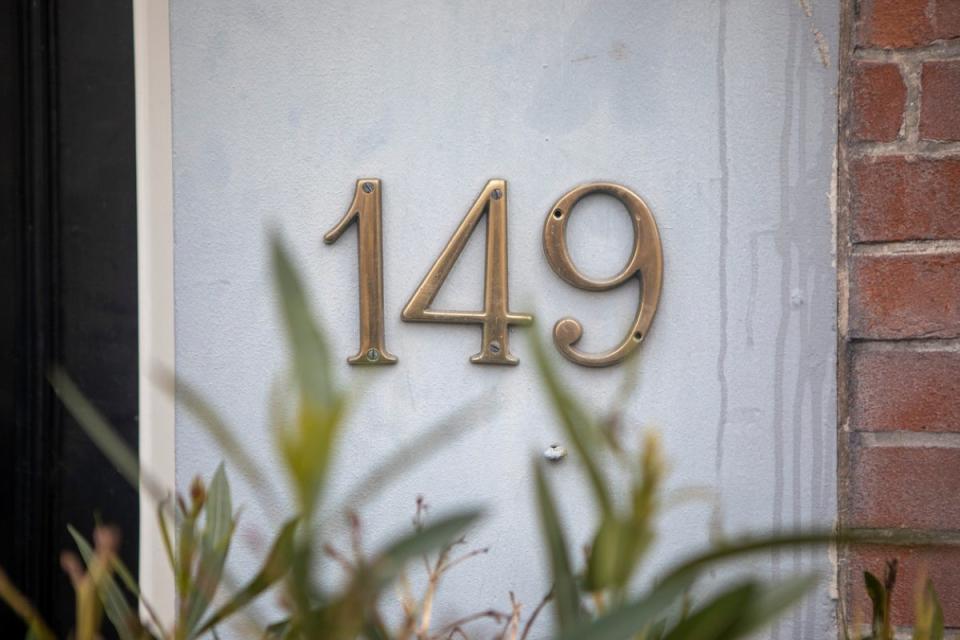
Photo: istockphoto.com
In case of a break-in or a medical emergency, first responders need to be able to locate your home as quickly as possible. Small house numbers are difficult to see and can make it tough for emergency workers to find an address. To be seen easily from the street, house numbers, like these from QT House Numbers, should be at least 6 inches high. For the best visibility, install the numbers on a surface in a contrasting color.
5. Fake Video Camera
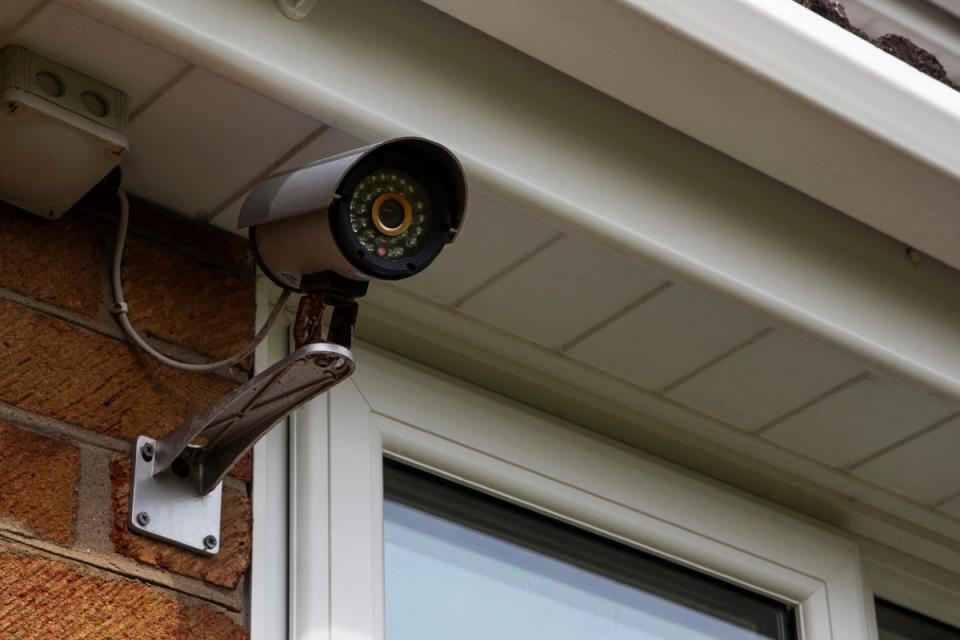
Photo: istockphoto.com
A video surveillance system is an asset to any home security plan, but installing one can cost $1,000 or more. If that’s out of your budget, don’t worry. Many of today’s dummy cameras such as F. Finders & Co.’s fake CCTV camera are virtually impossible to distinguish from the real thing. For authenticity’s sake, make sure the camera you choose has a wire and a blinking red light that flashes at night.
RELATED: How to Install Security Cameras
6. Pocket Radio
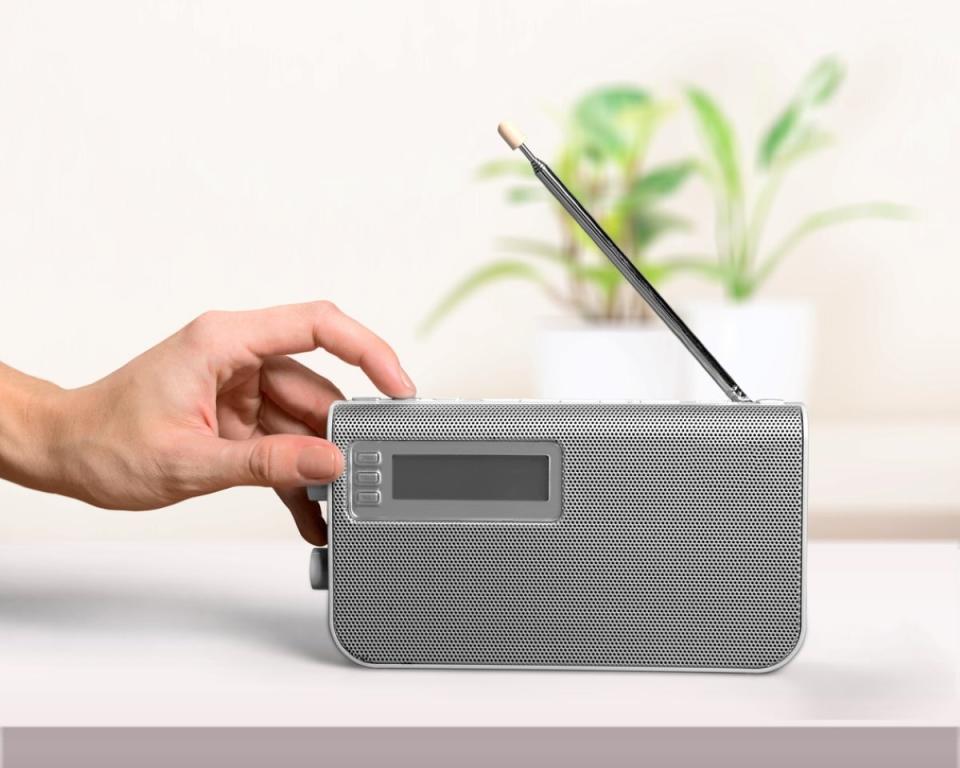
Photo: istockphoto.com
Keep a radio on a table inside and near the front door and turn it on when leaving. It’s an inexpensive way to make unwanted visitors think someone is still in the house, and will deter most burglars who count on being alone in the home while they’re stealing your possessions.
RELATED: Buyer’s Guide: The Best Pocket Radios
7. Pet Rescue Decals

Photo: istockphoto.com
In the event of a house fire, keeping beloved pets safe could come down to letting first responders know how many and what kind of pets are in your home. Pet rescue decals, which should be placed either on a glass door inset or in the window closest to the front door, alert rescue workers that your beloved animals are inside and in need of rescue. Order free pet rescue decals from the ASPCA.
RELATED: 15 Household Items That Could Save Your Life
8. Wi-Fi Video Doorbell
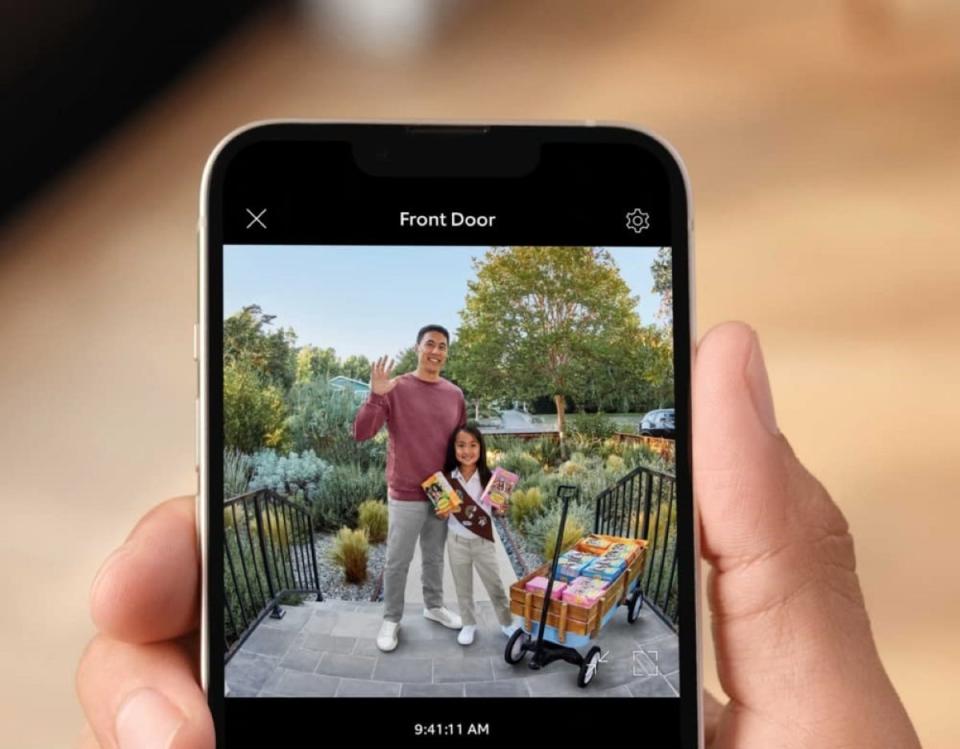
Photo: amazon.com
Most burglars come right through the front door if they think no one is watching, even in broad daylight. One of the most popular gadgets in home security is a Wi-Fi video doorbell, such as the Ring Battery Doorbell Plus. The doorbell sends an alarm to your smartphone when someone approaches the front door, and records video of the front door area. Burglars are getting smart to these doorbells and steering clear of homes that can document their bad behavior.
RELATED: Buyer’s Guide: The Best Video Doorbells
9. Door Brace
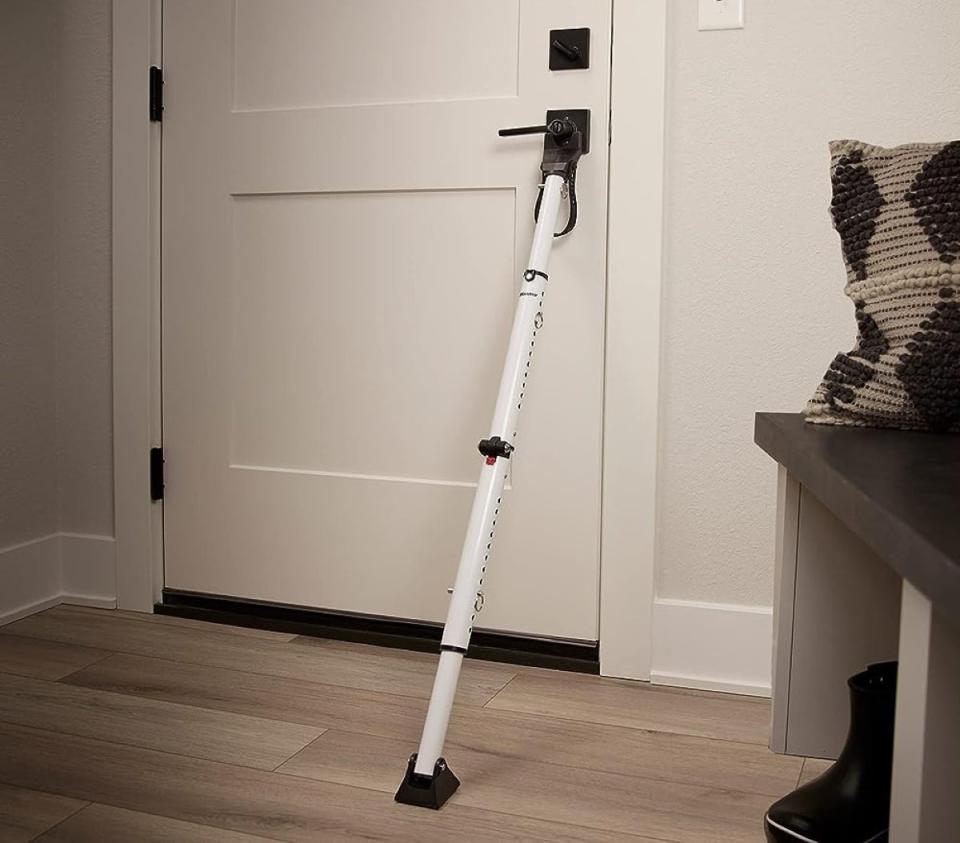
Photo: amazon.com
If you live in a crime-ridden neighborhood, or you have teenage kids that are home alone for a couple of hours after school, invest in a door brace and keep it right inside your front door. A good door brace, such as the Master Lock Door Security Bar, will prevent even the most determined invader from getting in. The brace slips in place beneath the door knob and then a lever tightens it down. Even a flimsy door is virtually impossible to break down with a door brace in use.
RELATED: 36 Easy Ways to Protect Your Home From Break Ins
10. Keypad Lock
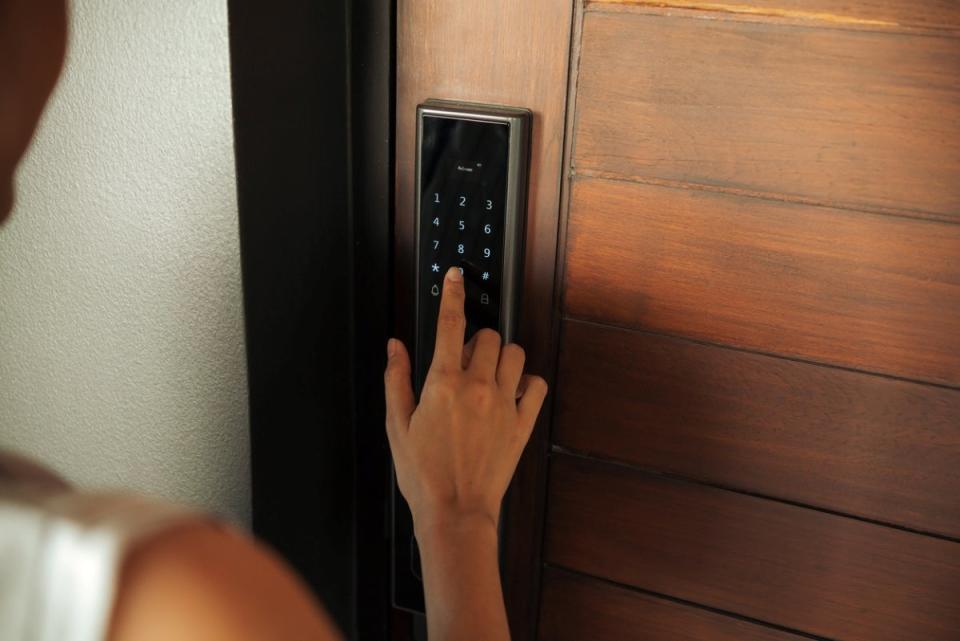
Photo: istockphoto.com
When asked how they gain access to locked homes, convicted burglars are quick to share one of their industry secrets—they use a key. Often, homeowners leave a hidden key for family members, but it’s a bad idea—crooks know all the best hiding places. Instead, install a touchpad entry lock like Schlage's Z-Wave Touchscreen Deadbolt. Today’s keypad locks come in attractive designs and many feature alarms, fingerprint recognition, and Alexa connectivity.
RELATED: Buyer’s Guide: The Best Keypad Door Locks
11. Reinforced Door
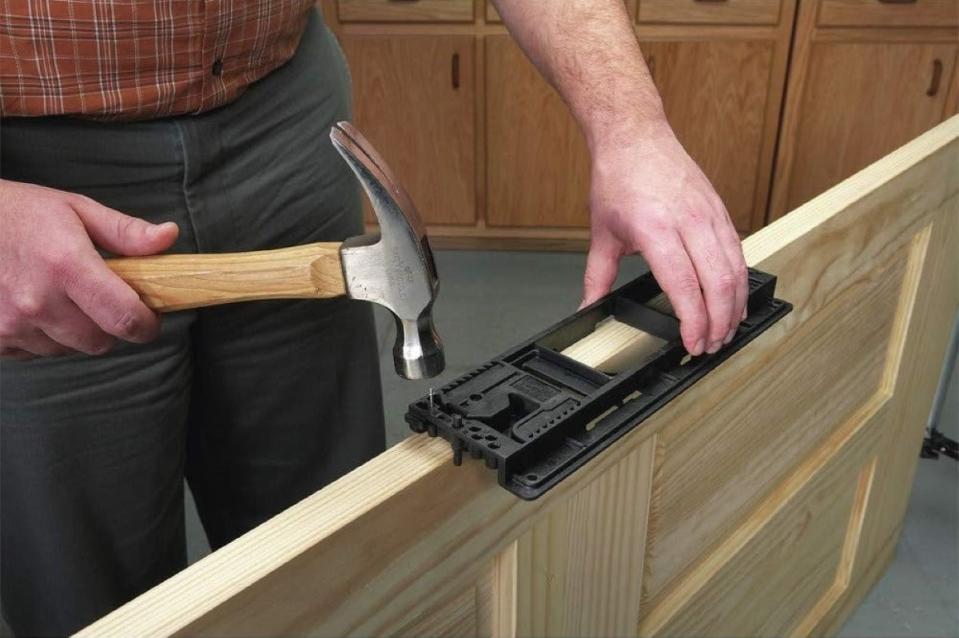
Photo: amazon.com
A seasoned burglar can kick open a weak front door. A solid-core front door that is properly and securely installed is your best line of defense. The most secure entry doors are made of steel or solid wood. Door frames and jambs also are weak points. While replacing a door or reinforcing the frame usually is best left to pros, it’s wise to do a thorough check of front door security. If you’re installing a new door, invest in a door hinge jig like the Porter-Cable door hinge template for better accuracy.
Even if you’re not installing a brand-new front door, there are still things you can do to amp up safety at your home’s entry point: Ensure the deadbolt is secure, and replace an old strike plate with a heavy-duty one made of steel. Screw the strike plate in with screws that are at least 3 inches long. If these steps are beyond the budget or your DIY skill level, reinforce door jambs with an easy-to-install chain, door shield, hinge guard, or door brace.
RELATED: 8 Ways to Secure a Door From Being Kicked In
12. Motion Sensor Lights
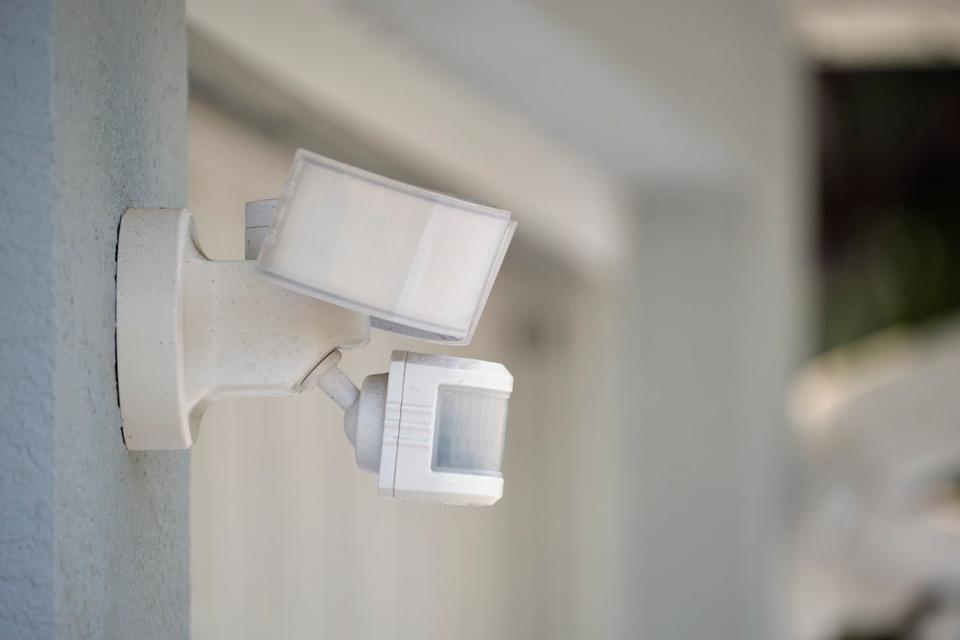
Photo: istockphoto.com
Deterring would-be criminals often is a matter of making it more difficult for them to break in undetected. However, it’s not the best idea to leave a front porch light on while away for a few days. Anyone casing a street will take note of the daytime illumination. Motion sensor lights come on only when they detect motion, and hardwired sets install easily at the point of existing wired lights. Although attractive options abound, Leonlite LED Motion Sensor Flood Lights can pick up motion from 50 feet away and illuminate 70 feet out, just enough spotlight effect to discourage those looking for an easy front door target.
Solar motion sensor lights, like the Urpower Solar LED Lights, can offer more flexibility for placement since they do not need to be hardwired. These come in a pack of four lights to illuminate approaches, the front door, and even the garage door or a window. The only drawback is that the light’s solar collectors (located on the angled top of each light) must be oriented so they get enough sun during the day to charge. Install motion-sensing lights where they will make the front door visible and test them to ensure they detect motion as someone approaches the door.
RELATED: 8 Ways to Make It Look Like You’re Home When You’re Not
13. Security Door
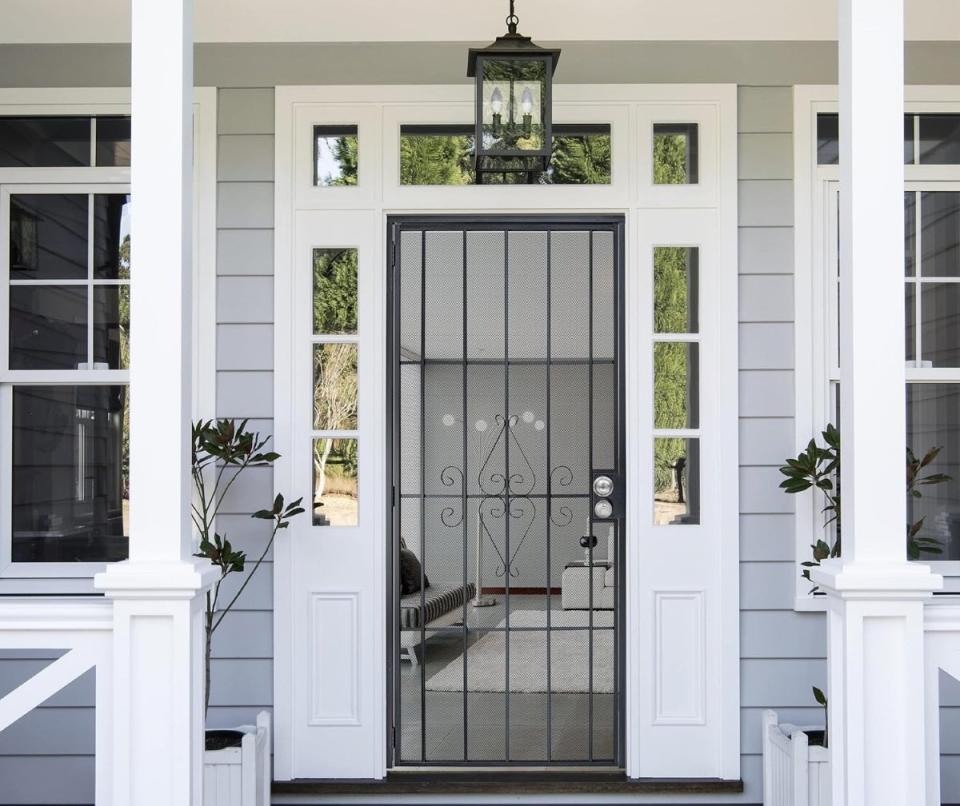
Photo: amazon.com
Add another layer of protection to your front door by installing a security door, which is typically made of iron, steel, and metal screen or reinforced tempered glass. Unlike a screen door, which is typically aluminum and screen mesh, security doors are tough to break, pry, or cut through. And though a bland wrought iron might not be a first choice for appearance, the doors come in plenty of styles, depending on budget (with custom designs on the highest end).
Another upside to security doors is their transparency: You can open the main front door to let in more natural light or breeze, and still have a strong barrier between you and the outside. The basic but sturdy Unique Home Designs steel security door boasts a heavy-duty lockbox in addition to its steel frame and screen. Although this front door addition can be more costly and might involve hiring a pro to install, it’s a long-term solution to added security when you're at home and away.
